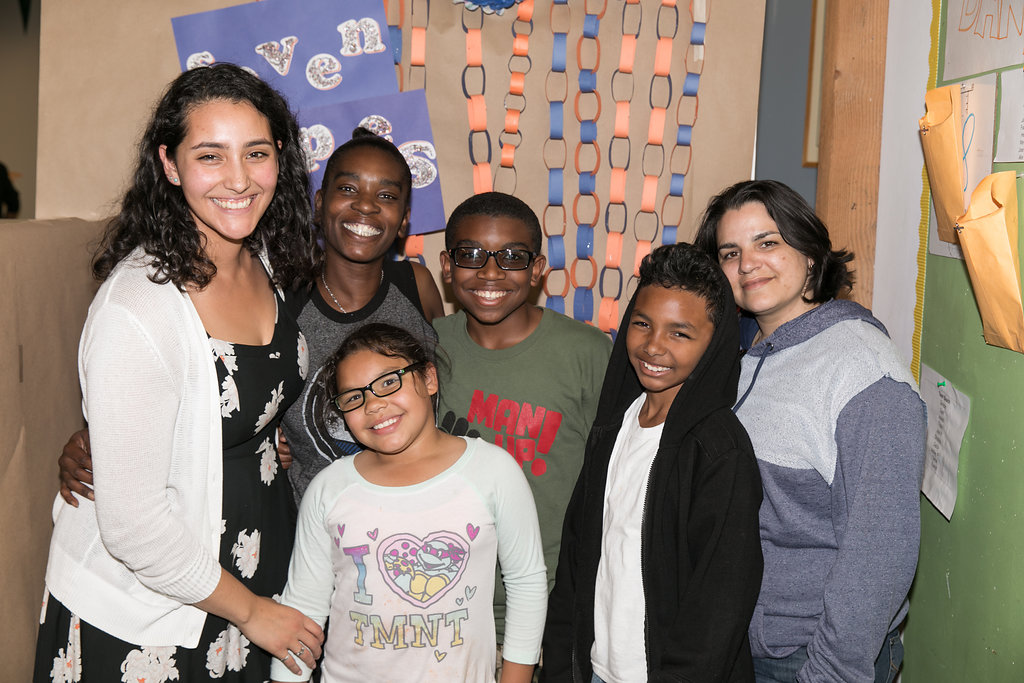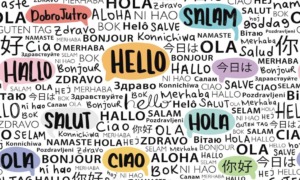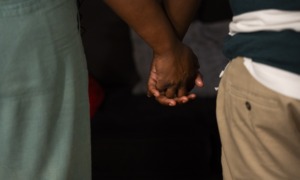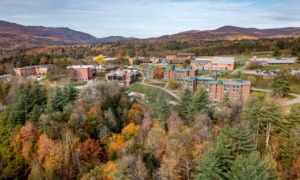Twenty-two years ago, a retired juvenile court judge in San Francisco teamed up with a Native American healer to help kids get on a positive path and avoid juvenile court.
Superior Court Judge Daniel Weinstein and Hully Fetiçó — who was a youth probation commissioner as well as an athlete, dancer and healer — designed a small summer camping program in which low-income, underserved kids lived in seven tepees, each representing one continent of the world.
In their first activity, 15 kids built the tepees and camped for a week near Redding, California.
Today Seven Tepees is a comprehensive youth development program in San Francisco that supports 125 kids per year in preparing for college and career.
It was among 18 organizations across the nation that received grants in June from New York Life Insurance Company to help underserved middle school students reach ninth grade on time.
“Seven Tepees really focuses on student and family care,” said Chanda Guerin, Seven Tepees’ interim executive director.
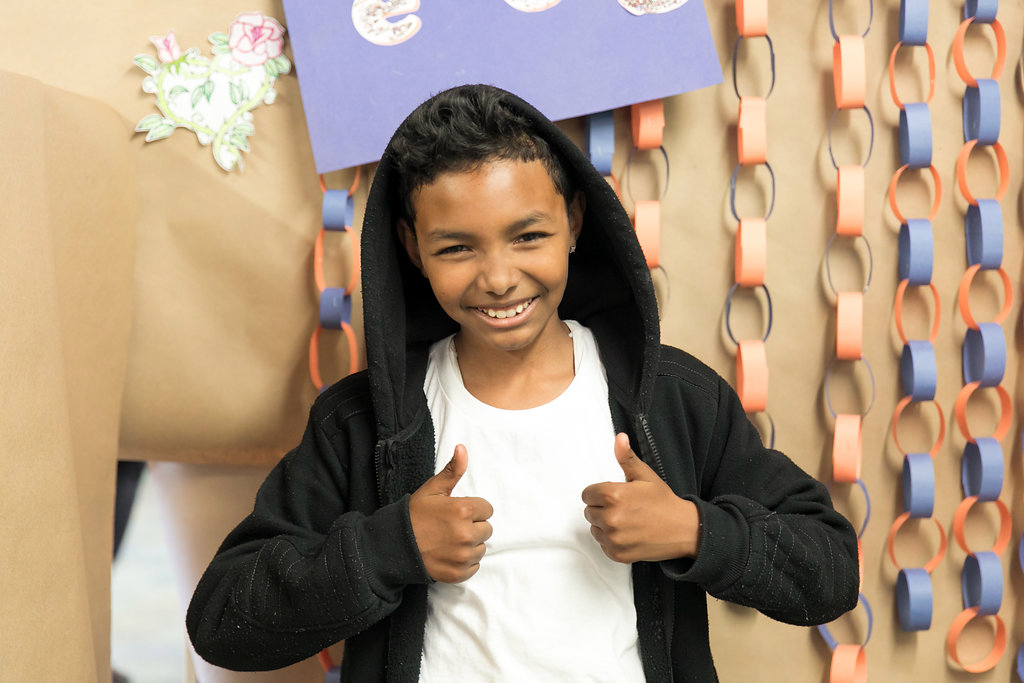
Ninety-five percent of participants are Latino, and more than half have parents who do not speak English, she said. The parents of others speak conversational English but may not be familiar with the U.S. school system.
“We are a cohort program,” Guerin said. Kids enter the program the summer after fifth grade and stay through high school graduation. Some of the kids who have graduated from high school continue to work with the program as tutors and mentors.
The after-school and full-day summer program offers homework help, tutoring, mentoring and other academic supports, as well as college advising, job training and internships. Counseling and crisis support are also part of the program.
Seven Tepees has spaces for 15 kids in each grade, and a case manager is devoted to each grade.
[Related: Peacebuilders Camp Focuses on Human Rights, Relationships]
The organization’s early focus on outdoor experiences remains, Guerin said. “We still do 16 trips a year,” she said. Kids are currently preparing for a five-day trip to Shasta-Trinity National Forest in northern California, she said.
Seven Tepees also focuses on the transition to high school, providing one-on-one counseling for students and workshops for parents. All staff speak both English and Spanish, Guerin said.
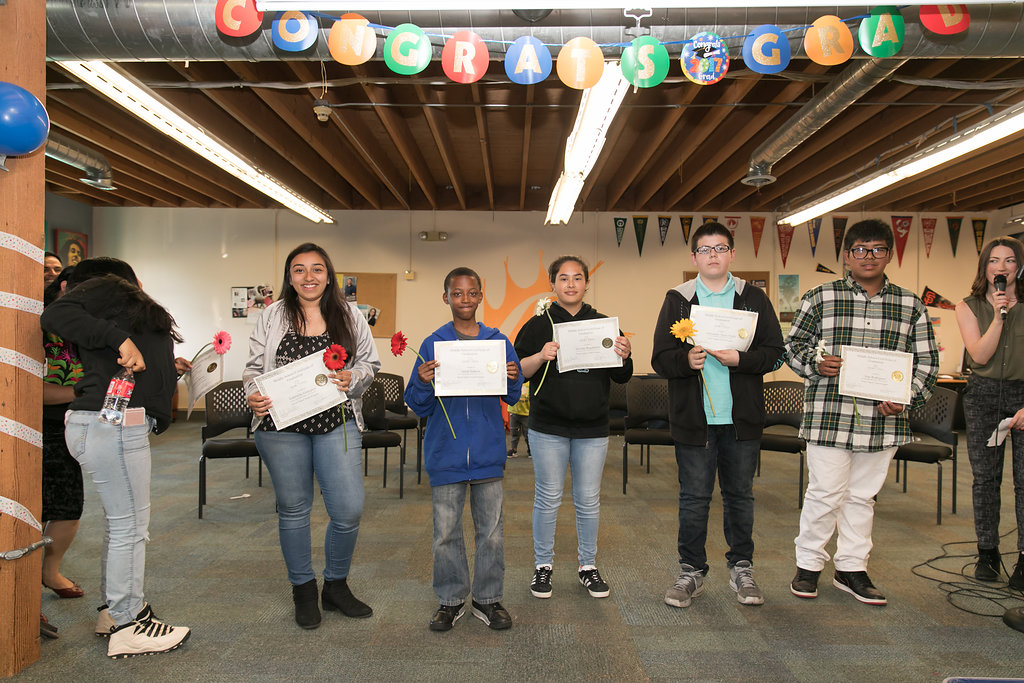
Information about San Francisco high schools is crucial, because middle schools in the district do not feed students to a particular high school. Instead, the city uses a lottery system, and students must apply to high school. Without careful attention, a student could end up assigned to a high school across the city, four buses away, Guerin said.
Seven Tepees serves families in the city’s most challenging neighborhoods: the Mission District, Bayview/Hunter’s Point, Potrero Hill and the Tenderloin.
Students and families are quite willing to commit to the free seven-year program, Guerin said. They are “really invested,” she said. Parents feel the need for after-school care, and they value the homework help and the assistance in navigating the school system, she said.
Parents are concerned about gangs and drugs and know that kids have many opportunities to get into trouble, Guerin said.
Ashley Allen is the college and career program manager.
“A lot of our youth — inner-city youth — have a traumatic relationship when it comes to academics and when it comes to the educational system,” Allen said in a video about Seven Tepees. “The program provides an encouraging environment for students to learn, one that isn’t overbearing and students can begin to have a positive relationship with learning.”
“The people who work here really care about the work because they have the same background, the same upbringing,” she said.
More related articles:
Effective Financial Literacy: What Youths Need to Know, When They Need to Know It
In Washington, D.C., Who’s Minding the Kids?
Two Interconnecting Puzzle Pieces: Trauma-Informed Approach and Restorative Justice


